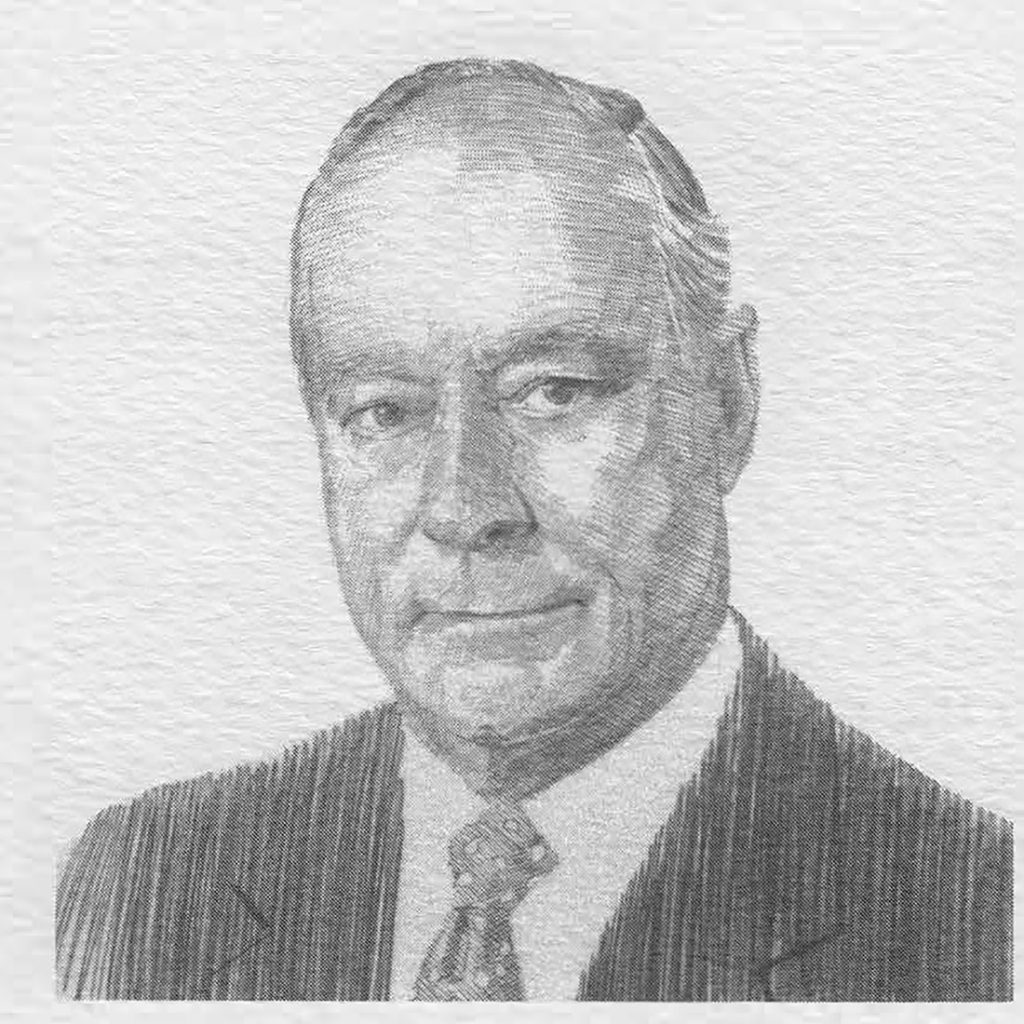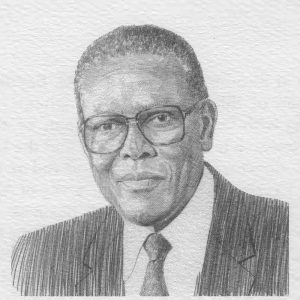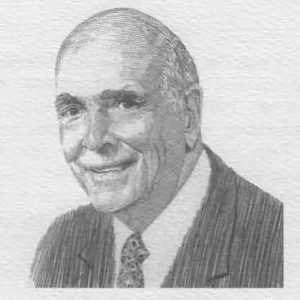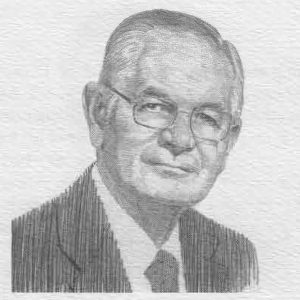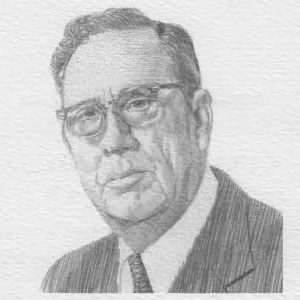Like his father and grandfather before him, John R. Miller, Jr. will be a part of the T.R. Miller Mill Company until he dies.
And like his father and grandfather before him, John R. Miller, Jr., now serving as director and chairman of the board of the company where he has been employed for fifty years, believes with all his heart that the continued success is due to the vision his family shares for its future.
Born May 8, 1920, to John R. and Lucille McGowin Miller, John is a native of Brewton, Alabama, where he received his early education before attending Culver Military Academy in Culver, Indiana, from 1934-1938. Upon graduation from that institution, he then attended the University of Virginia and The University of Alabama, leaving his academic career to answer the call to service for his country. John served as a pilot in the U.S. Air Force, 8th Air Force, in the European Theatre of Operations in World War II, receiving the decorations of Air Medal, E.T.O. Medal, and a Presidential Citation, and was honorably discharged with the rank of major.
It was during his time in the service that he married Virginia Kersh of Monroe, Louisiana, with whom he would later have four children: Nancy M. Melton, J. Richard Miller III, David Earl Miller, and Jean M. Stimpson. Remembering his childhood, Richard Miller said his memories of his father will always be inextricably linked with fishing and fun, and with the image of a man who encouraged his children to follow their own paths. “He always did and continues to encourage us to pursue our dreams without constraints,” said Richard.
Upon returning to Brewton after his discharge from the service, John was formally employed by T.R. Miller Mill Company, where he worked at various positions in the manufacturing division before being elected a director in 1946. He served as vice president and director from 1947-1967, then assumed the presidency, which he held through 1986 when he was then named chairman.
Over the years, the Miller family’s vision for its business has played out into a solid reality. When John’s grandfather, Thomas R. Miller, purchased a small, water-driven mill along Cedar Creek in 1872, he in all likelihood did not envision its growth into a firm that is one of the largest timberland owners and diversified wood products operations in the South. In his day, the waters of Cedar Creek transported logs to the mill from the vast virgin forest nearby and turned the mill as well. Later those same waters transported the timber to Pensacola, Florida, for export. John Miller explained that with the expansion of lumber markets, T.R. Miller later decided to relocate the mill to the town of Brewton, where it was converted to a steam-powered operation in 1892. The new mill, built along the Louisville and Nashville Railroad, enabled T.R. Miller’s new· company to ship its products by rail as well as water.
“Timber has been good to us for many years,” said John. “Actually, I’m not the first Miller to say that. My father used to remind each of us that if the company was to survive and grow, we must constantly be aware of the land – and of what it can provide sensing that diversification was the way to go, John’s father was instrumental in the company establishing veneer mills, a wire-bound box plant, and a treating operation. Through the years, John has been involved in helping to establish any number of companies, from vineyards in California, television and cellular phone companies across the United States, and commercial and residential real estate, to name but a few. These operations are a bit more sophisticated and far-flung than they were in the days when Thomas R. Miller laid down his hoe and swore he’d never chop another row of cotton again, thus beginning a new era in his family’s history.
“My first thought when you mention my father’s approach to business is that Daddy always approached everything – business or anything else – from a totally honest standpoint,” Richard said. ”Whatever he was involved in, it had to be good for both parties. Integrity is the word that comes to mind. He is probably the nicest guy I’ve ever known – that’s not to say he’s soft in approach – he’s just basically a good people person.
“He can reach compromises when there are none to be had.”
And it was that combination of people skills, business acumen, and integrity that made John Miller and his company major players in the discovery and subsequent drilling of Jay Oil Field along with the Escambia County, Alabama-Florida line – a find that meant the discovery of the largest finding of oil in the lower forty-eight states in the last fifty years. That ability to facilitate a compromise also led in 1968 to a deal that John Miller will always consider one of the highlights of his more than half-century-long business career, said Richard. For it was that year that Container Corporation of America had acquired a more than 51 percent share of T.R. Miller Mill Company – an acquisition that would have meant the end of three generations of family ownership of the forest products industrial site. However, prior to the sale being finalized, John convinced Container’s chairman to allow the family to buy enough of the offered stock so that the Millers could retain controlling interest.
“That deal in 1968 allowed the families to remain in control of what has been an asset for our family now into the fourth generation,” Richard said with pride. The original owners were able to purchase the remaining stock held outside the company in 1989.
And as John Miller has served as the third-generation patriarch for his family and business, he has also not neglected his commitment to his church, his community, or his state. He and his wife, Virginia, showed their firm commitment to the future of Alabama’s forestland and its wood products industry in the early 1990s when they made a gift of prime timberland to Mobile College. The proceeds from the sale of the property were directed to the college’s Forest Resources Learning Center, a joint initiative of the Alabama Forest Resources Center and Mobile College.
“The center is a worthwhile project,” said John Miller, whose company received the coveted Forest Conservationist of the Year Award from the Board of Directors of the Alabama Wildlife Federation in 1995. “I believe that the continued success of the industry depends on a better understanding of environmental stewardship and good land practices.” He emphasized that this will only happen if the next generation understands the importance of forestry issues.
Thanks to John R. Miller, Jr., the next generation has a better chance.

